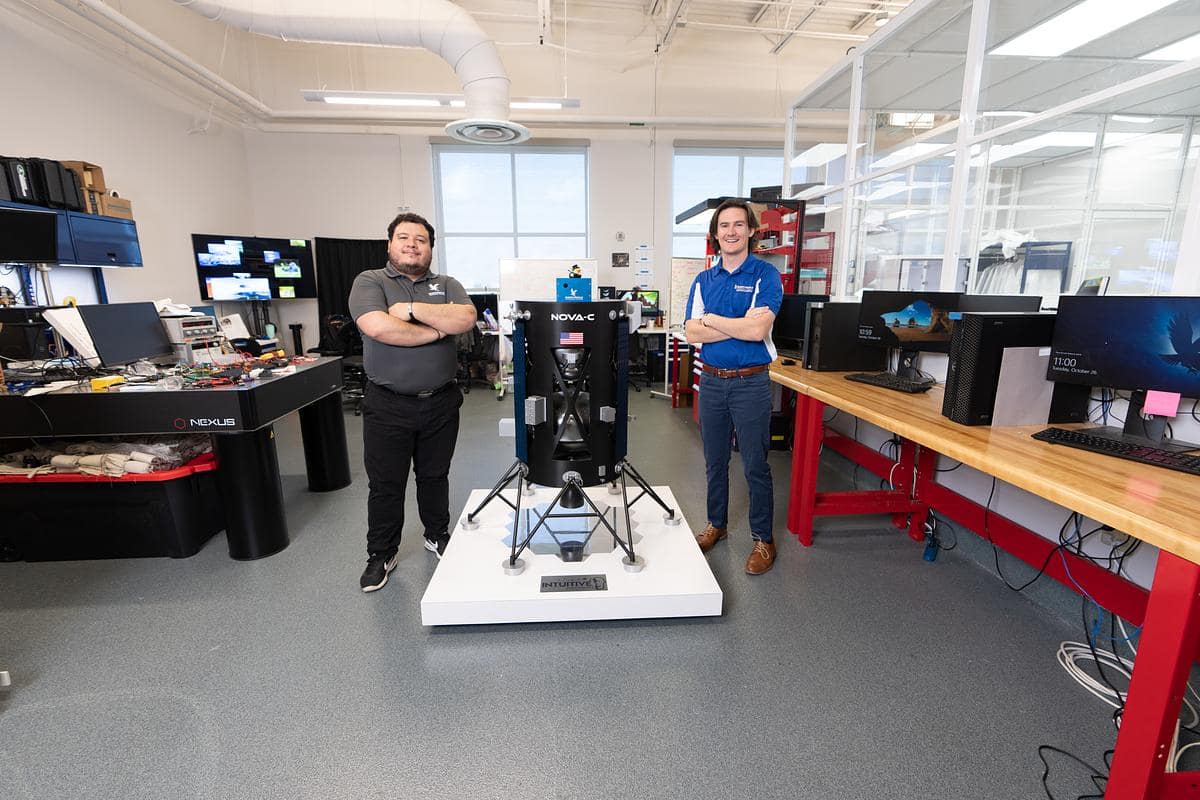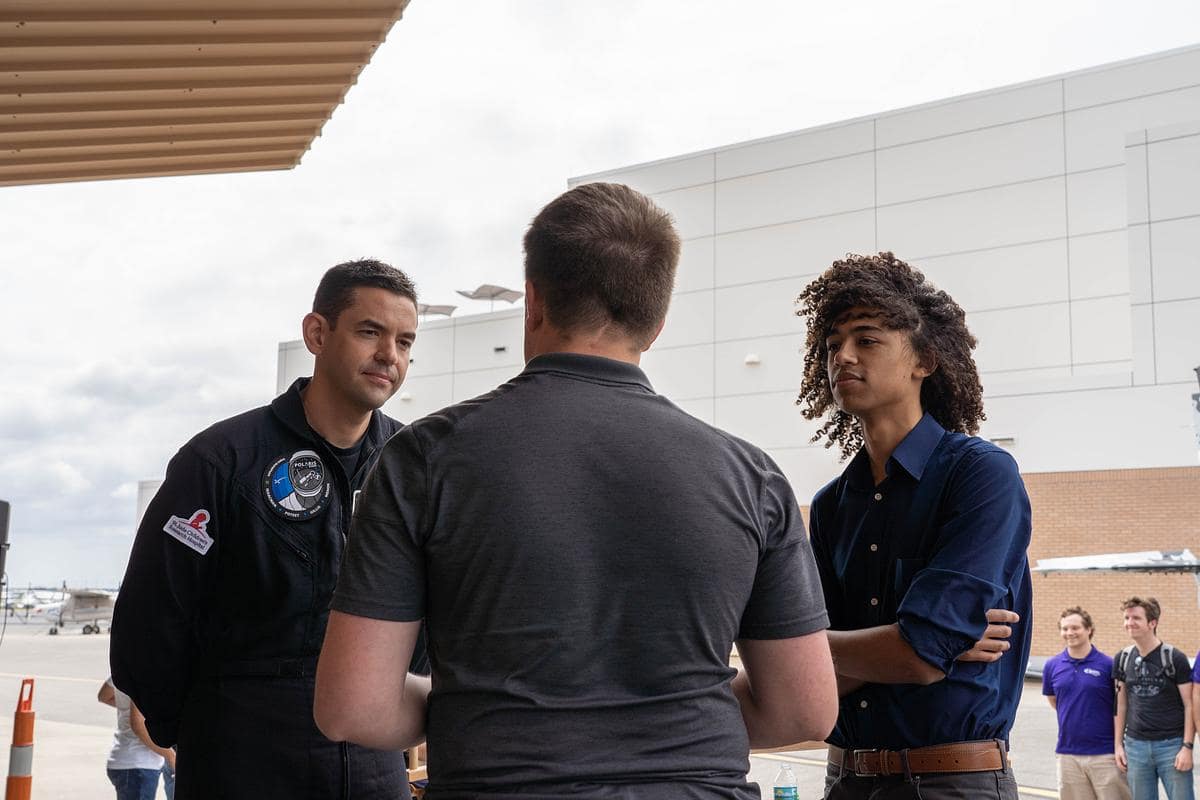

Find Your Place in Space

Ready to reach for the stars? Then follow the Embry‑Riddle alumni who have already begun exploring outer space, either by riding rockets into orbit, helping design, build and fly spacecraft or providing the vital support necessary for any successful venture into space.
Embry‑Riddle’s degree programs range from Aerospace Engineering to Space Operations and beyond, preparing you to turn your passion for space into a profession just like Aerospace Engineering grad Veronica McGowan (’16) did.
McGowan was an integral part of the first-ever human commercial spaceflight when Virgin Galactic’s Unity 22 launched in July 2021.
“My team and I were responsible for the design, build and maintenance of the spaceship and mothership airframes, which are essentially the bones of the vehicles,” she said. “On launch day, I was the livestream ‘mission host’ providing commentary about various phases of the flight.”
Two other alumni also blazed historic new trails in space. Jared Isaacman (’11) was the driving force behind the first all-civilian orbital mission, Inspiration4, which launched in September 2021.
Isaacman served as commander and was joined by fellow alum Chris Sembroski (’07) and two other civilian astronauts – Sian Proctor and Hayley Arceneaux – in spending four days aboard SpaceX’s Crew Dragon capsule.
And Eagle ingenuity will be headed to the moon soon. A team of students have designed the EagleCam Cube Sat, which will head to the lunar surface aboard the Nova C lander in 2022.
The camera will make history by detaching itself from the lander to capture the first-ever photos of a space vehicle landing on another planet.
“When you read about the moon in a textbook, you sometimes wonder what it felt like to be at the forefront of those findings,” said Aerospace Engineering grad Daniel Posada (’20, ’23). “Now, with all the data that will be gathered, we’ll experience of the thrill of discovery and inspire future generations to look at the moon in a different way.”
With campuses in Florida and Arizona and a range of online offerings, Embry‑Riddle provides unparalleled education and unrivaled practical experience that opens doors in this exciting and rewarding field.



